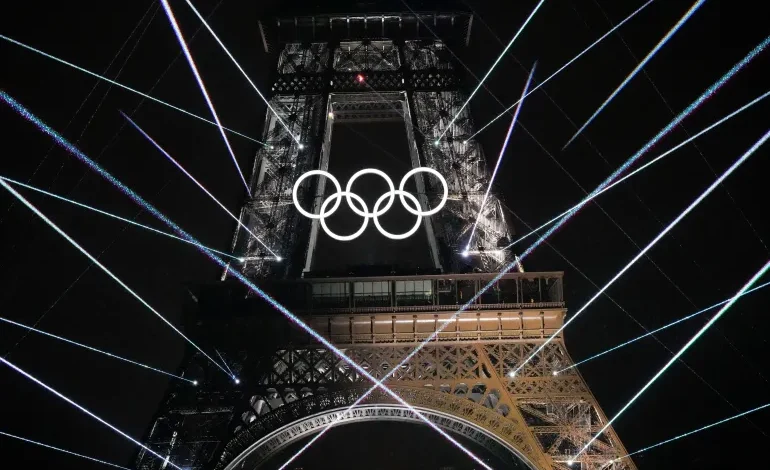Schedule, sports, stars: All to know about the Paralympic Games Paris 2024

Less than two weeks after the curtain fell on the Olympic Games, Paris is set to light up again for another mega sporting event.
The Paralympic Games 2024 will be held in the French capital from Wednesday and will see thousands of athletes compete for coveted medals.
When are the Paralympics 2024?
The Paralympics will be held from Wednesday, August 28 to Sunday, September 8.
When and where will the opening ceremony be held?
A glittering opening ceremony, beginning at 8pm local time (18:00 GMT) will kick off the games on Wednesday. It will be the first ever Paralympic opening ceremony to be held outside a stadium, similar to the opening of the Olympic Games about a month ago.
Athletes will parade through Paris’s landmark Avenue des Champs-Elysees to the Place de la Concorde public square in front of an expected 65,000 people.
Where will the Paralympic events be held?
The 18 venues across Paris and its outskirts that will play host to games are:
- Stade de France: Para athletics
- Roland-Garros Stadium: Wheelchair tennis
- Chateau de Versailles: Para equestrian
- Paris La Defense Arena: Para swimming
- Eiffel Tower Stadium: Blind football
- Invalides: Para archery
- Pont Alexandre III: Para triathlon
- Grand Palais: Wheelchair fencing, para taekwondo
- Champ de Mars Arena: Para judo, wheelchair rugby
- Porte de la Chapelle Arena: Para badminton, para powerlifting
- South Paris Arena: Boccia, para table tennis, goalball
- Chateauroux Shooting Centre: Shooting
- North Paris Arena: Sitting volleyball
- Bercy Arena: Wheelchair basketball
- Saint-Quentin-En-Yvelines Velodrome: Para cycling – track
- Vaires-Sur-Marne Nautical Stadium: Para canoe, para rowing
- Clichy-Sous-Bois: Para cycling – road
- Saint-Denis to Esplanades des Invalides: Paralympic marathon route
How many athletes will participate in the Paralympics 2024?
More than 4,400 athletes are gathering in Paris for the games.
What sports are in the Paralympics 2024?
Athletes will compete in 549 medal events spread across 22 sports, which are:
- Para archery
- Para athletics
- Para badminton
- Blind football
- Boccia
- Para canoe
- Para cycling
- Para equestrian
- Goalball
- Para judo
- Para powerlifting
- Para rowing
- Para shooting
- Sitting volleyball
- Para swimming
- Para table tennis
- Para taekwondo
- Para triathlon
- Wheelchair basketball
- Wheelchair fencing
- Wheelchair rugby
- Wheelchair tennis
Which sports are unique to the Paralympics?
Only two Paralympic sports – goalball and boccia – do not have an Olympic equivalent.
Goalball is played on an indoor court the size of a volleyball court, with goals on each end. Teams of visually impaired or blind players (wearing eyeshades to ensure fairness) take turns rolling a ball containing bells towards the opposing side’s goal. The defending team’s players act as goalkeepers.
Who are the biggest Paralympic stars to watch?
- Gustavo Fernandez (Argentina): Wheelchair tennis
- Shae Graham (Australia): Wheelchair rugby
- Alistair Donohoe (Australia): Para cycling
- Alana Maldonado (Brazil): Para judo
- Patrick Anderson (Canada): Wheelchair basketball
- Claire Taggart (GB): Boccia
- Rachel Choong (GB): Para badminton
- William Ellard (GB): Para swimming
- Avani Lekhara (India): Para shooting
- Sumit Antil (India): Para athletics
- Bebe Vio (Italy): Wheelchair fencing
- Simone Barlaam (Italy): Para swimming
- Sugiura Keiko (Japan): Para cycling
- Amalia Perez (Mexico): Para powerlifting
- Diede de Groot (Netherlands): Wheelchair tennis
- Birgit Skarstein (Norway): Para rowing
- Haider Ali (Pakistan): Para athletics
- Oksana Masters (USA): Para cycling
- Tatyana McFadden (USA): Para athletics
- Jessica Long (USA): Para swimming
Who can qualify to compete at the Paralympics?
To compete at the Paralympics, athletes must have “an underlying health condition that leads to a permanent eligible impairment,” according to the International Paralympic Committee.
Impairments can be caused by either cerebral palsy, traumatic brain injury, multiple sclerosis, muscular dystrophy, amputations, physical injuries or intellectual impairment, blindness or reduced sight.
How are athletes classified?
To ensure fair competition between Paralympians, athletes are grouped by how limited they are by their impairment or how much of an effect it has on their ability to compete in their chosen sport.










